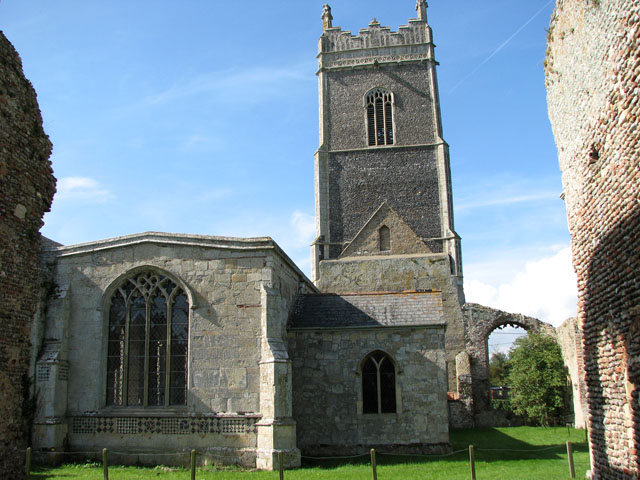St Andrew's church in Walberswick
Introduction
The photograph on this page of St Andrew's church in Walberswick by Evelyn Simak as part of the Geograph project.
The Geograph project started in 2005 with the aim of publishing, organising and preserving representative images for every square kilometre of Great Britain, Ireland and the Isle of Man.
There are currently over 7.5m images from over 14,400 individuals and you can help contribute to the project by visiting https://www.geograph.org.uk

Image: © Evelyn Simak Taken: 21 Sep 2010
An older church which stood on the site was taken down in the late 14th century and a new church built on the same spot. St Andrew's church was dedicated in 1493. It was a large building, built onto the tower of the old church and it contained a side chapel and four altars. The nave and chancel had 18 clerestory windows on each side. The church prospered until tithes were stopped being paid in 1538. Subsequently the church and, in fact, the whole town became very poor. Very little was done to repair the church in the following decade. In 1695 permission was obtained to unroof nave, chancel > http://www.geograph.org.uk/photo/2077922 and north aisle and to sell the materials, including three of the four remaining bells, with the proceeds going towards the repair of the south aisle which still houses the current church. When the surrounding ruins were excavated in 1930 a quantity of 14th and 15th century stained glass, all in fragments, was found and many of these fragments were assembled into one light of a window > http://www.geograph.org.uk/photo/2077960 on the south wall. The south porch > http://www.geograph.org.uk/photo/2077907 has survived in its original state and is a good example of the original splendour of the church, as it looked in the 15th century. The elaborately carved pulpit > http://www.geograph.org.uk/photo/2077953 and the baptismal font > http://www.geograph.org.uk/photo/2077975 are also 15th century. The ruined east end of the church is divided from the west end by a grid line that runs through it, placing the church into two different grid squares.

